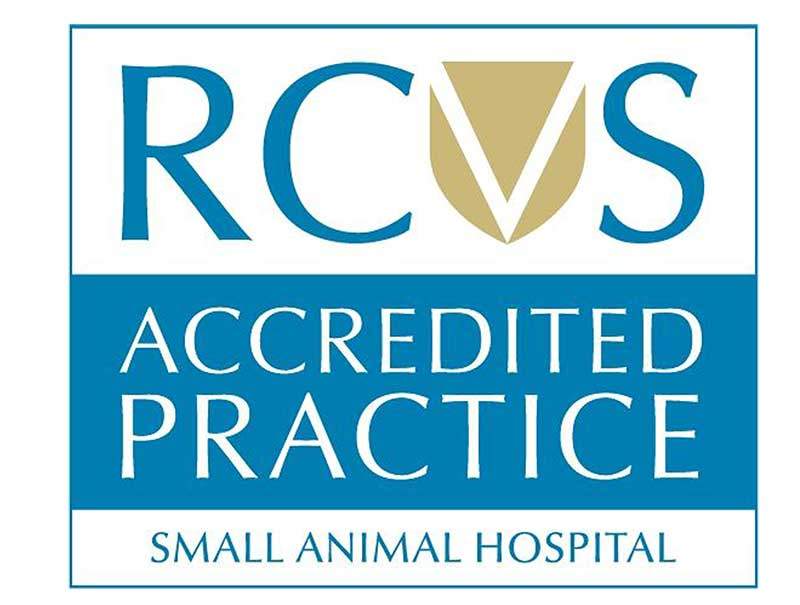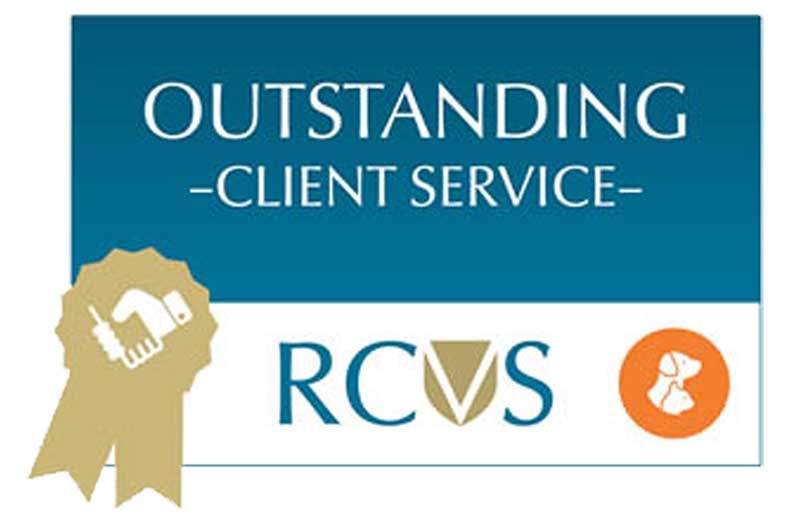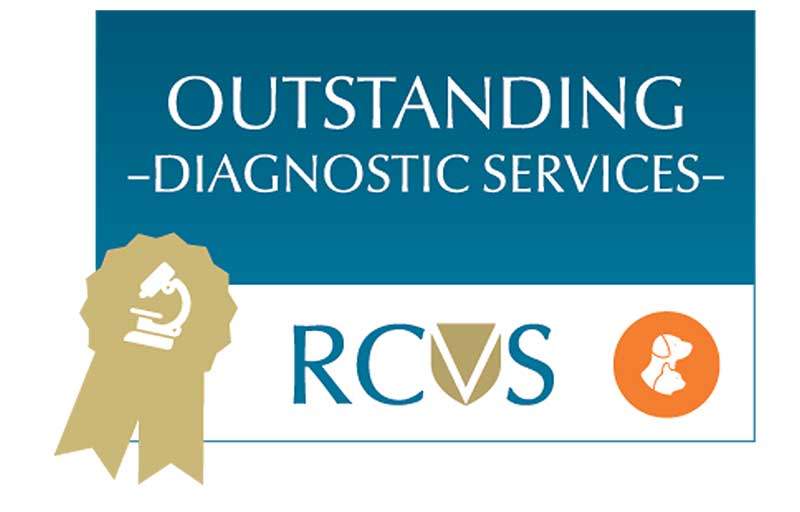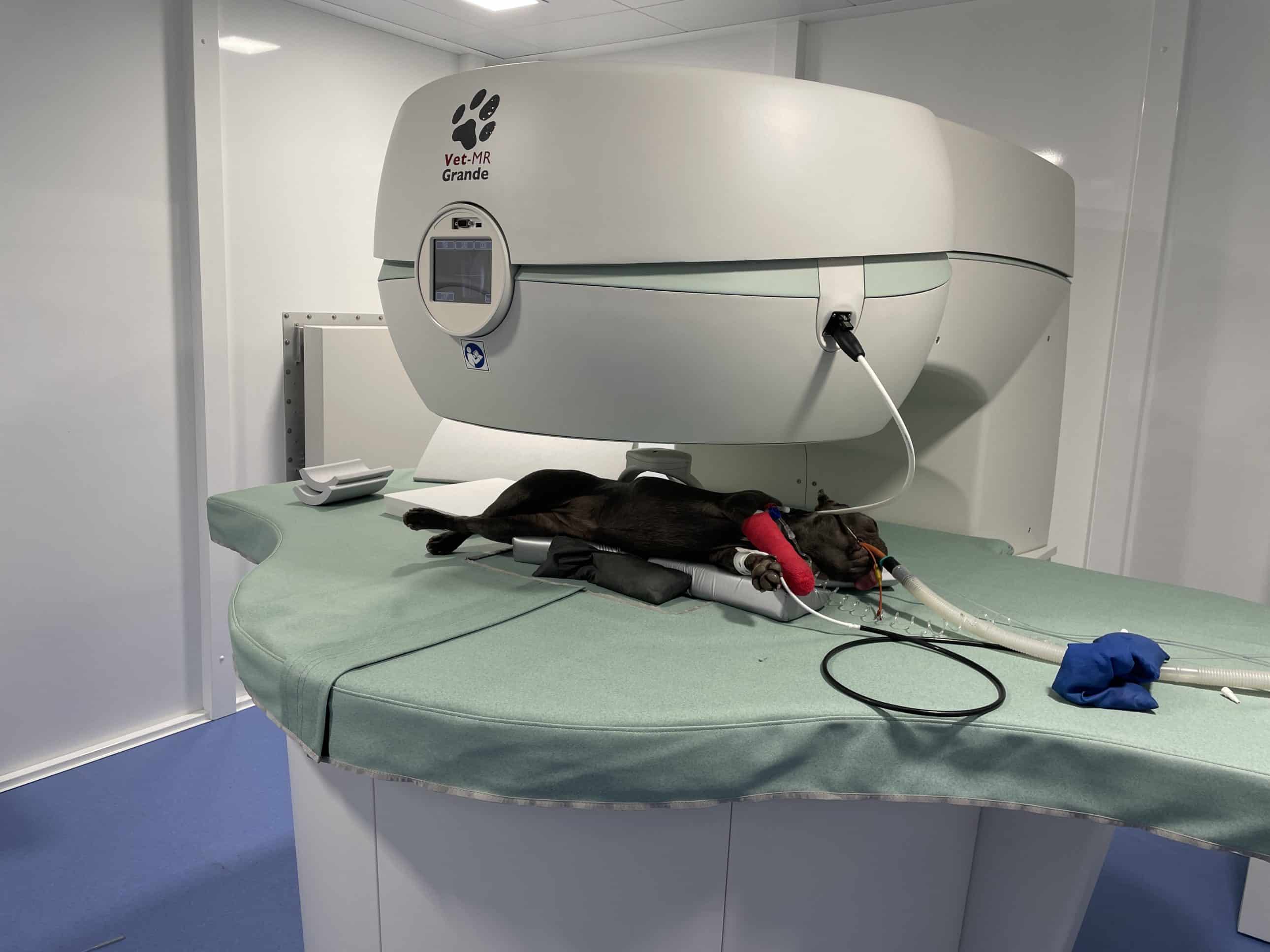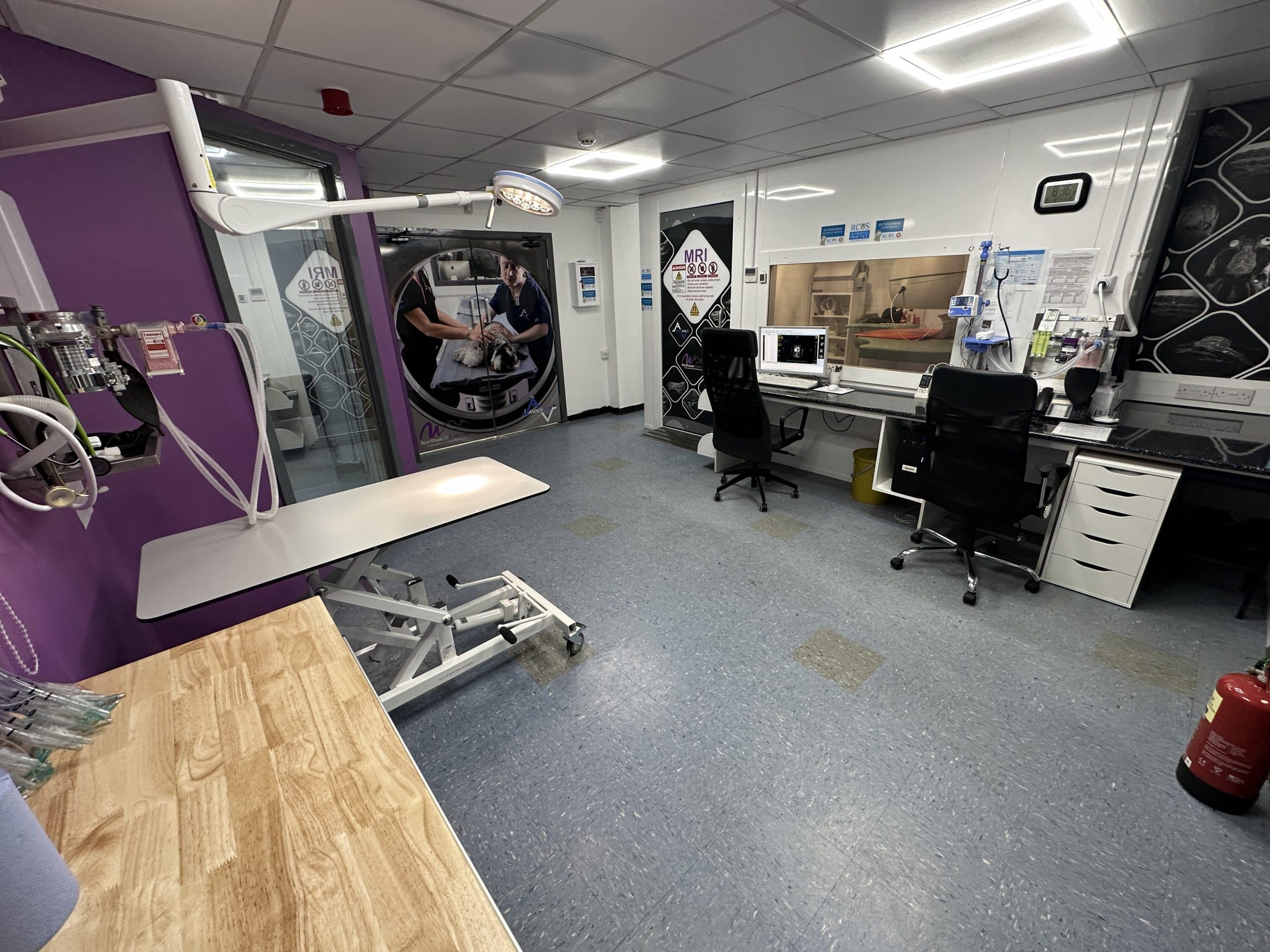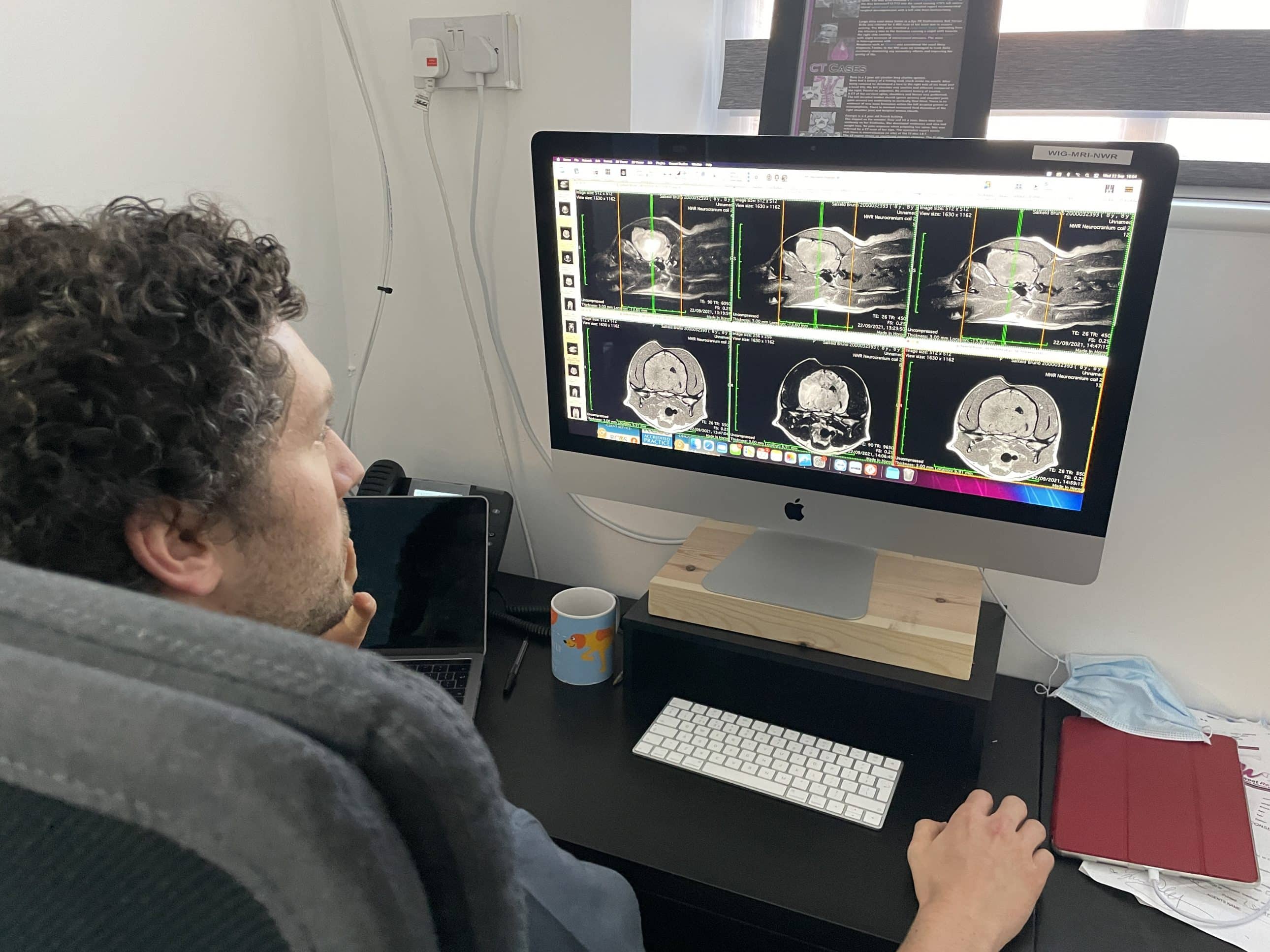About Veterinary MRI Scans
MRI stands for “magnetic resonance imaging”. Unlike a traditional radiographic procedure or CT scan, the Veterinary MRI does not use ionizing radiation so there is no harm to the pet undergoing the procedure. Instead, it uses magnetic fields and radio waves to form an image of the body part being scanned. The technology is therefore considered less invasive than traditional radiography, which uses potentially harmful x-rays to make images of the body.
How does a Vets MRI work?
In very simplified terms, when using a Veterinary MRI Scanner, you are using a large magnet to interrogate the hydrogen protons within the patient’s body. The magnet forces the hydrogen protons within the patient to align roughly to the same position as the magnetic field. Radiofrequency (RF) pulses are then used to energise the hydrogen protons, which causes them to stop being aligned to the main magnet. Once the RF pulse stop the protons quickly realign themselves to the main magnet – as they do this very small amounts of energy are released, and the system listens to this echo, and forms an image, this is done by using a receiver coil wrapped around the region of interest.
When do we use MRI?
Vet MRI scans are normally reserved for diagnosing problems and not typically prescribed as a screening procedure for Dogs & Cats or other Pets in good health. Most commonly, MRIs are used to diagnose problems with the brain and spinal cord after other tests fail to determine the cause of the illness.


